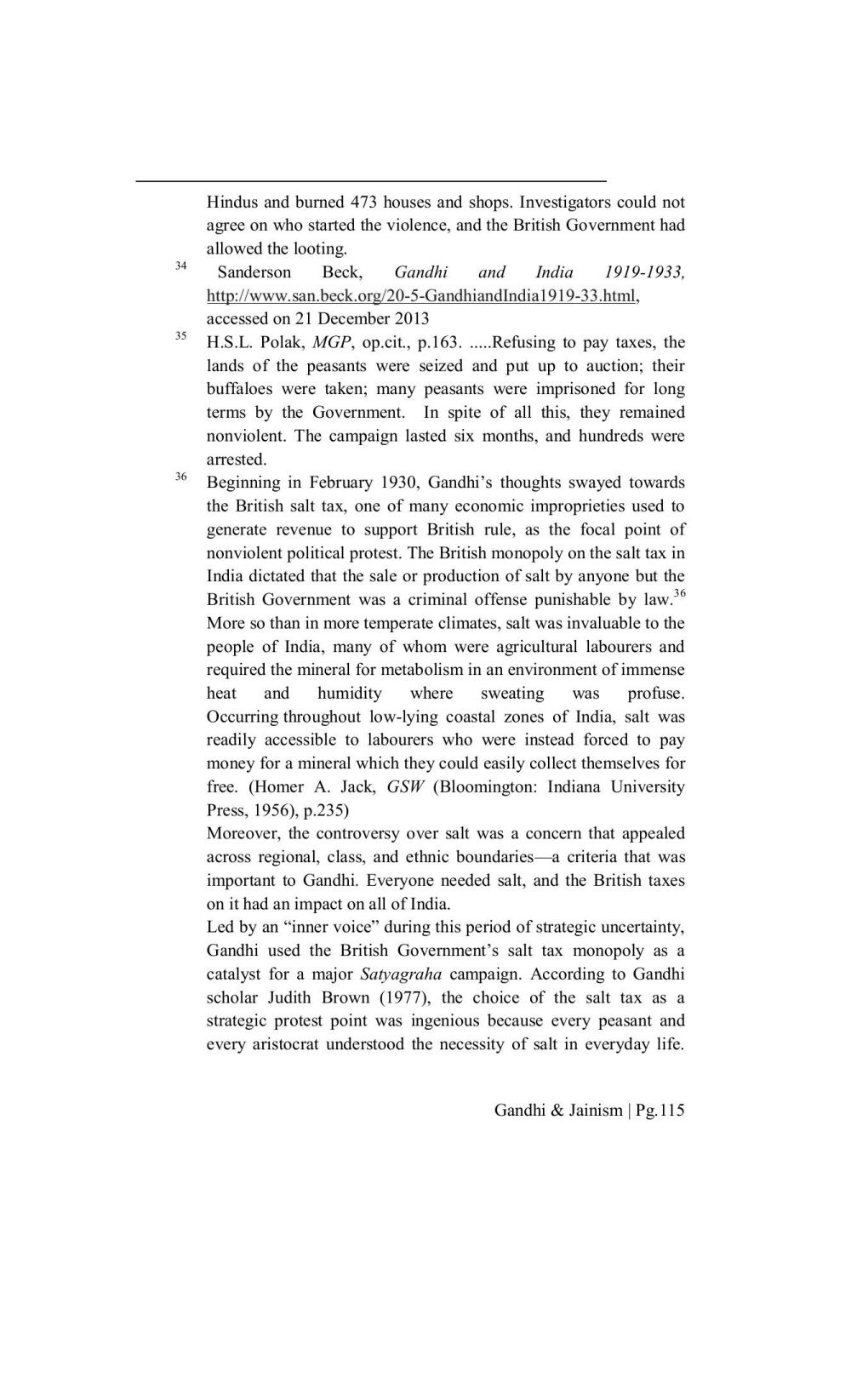________________
35
36
Hindus and burned 473 houses and shops. Investigators could not agree on who started the violence, and the British Government had allowed the looting.
Sanderson Beck, Gandhi and India 1919-1933, http://www.san.beck.org/20-5-GandhiandIndia1919-33.html, accessed on 21 December 2013 H.S.L. Polak, MGP, op.cit., p.163. .....Refusing to pay taxes, the lands of the peasants were seized and put up to auction, their buffaloes were taken; many peasants were imprisoned for long terms by the Government. In spite of all this, they remained nonviolent. The campaign lasted six months, and hundreds were arrested. Beginning in February 1930, Gandhi's thoughts swayed towards the British salt tax, one of many economic improprieties used to generate revenue to support British rule, as the focal point of nonviolent political protest. The British monopoly on the salt tax in India dictated that the sale or production of salt by anyone but the British Government was a criminal offense punishable by law." More so than in more temperate climates, salt was invaluable to the people of India, many of whom were agricultural labourers and required the mineral for metabolism in an environment of immense heat and humidity where sweating was profuse. Occurring throughout low-lying coastal zones of India, salt was readily accessible to labourers who were instead forced to pay money for a mineral which they could easily collect themselves for free. (Homer A. Jack, GSW (Bloomington: Indiana University Press, 1956), p.235) Moreover, the controversy over salt was a concern that appealed across regional, class, and ethnic boundaries—a criteria that was important to Gandhi. Everyone needed salt, and the British taxes on it had an impact on all of India. Led by an "inner voice” during this period of strategic uncertainty, Gandhi used the British Government's salt tax monopoly as a catalyst for a major Satyagraha campaign. According to Gandhi scholar Judith Brown (1977), the choice of the salt tax as a strategic protest point was ingenious because every peasant and every aristocrat understood the necessity of salt in everyday life.
Gandhi & Jainism Pg. 115




